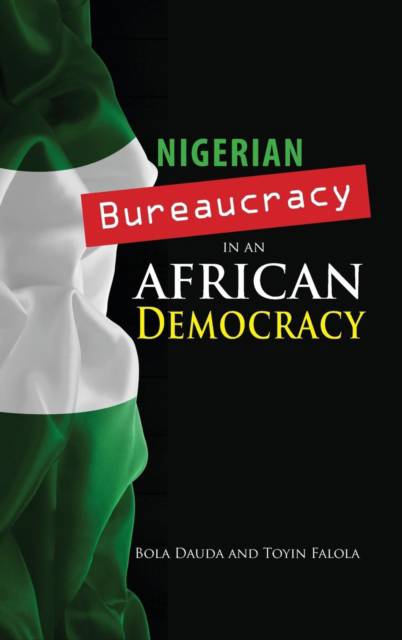
- Retrait gratuit dans votre magasin Club
- 7.000.000 titres dans notre catalogue
- Payer en toute sécurité
- Toujours un magasin près de chez vous
- Retrait gratuit dans votre magasin Club
- 7.000.0000 titres dans notre catalogue
- Payer en toute sécurité
- Toujours un magasin près de chez vous
Description
Although Nigeria adopted the American presidential system in 1979, bureaucracy-democracy relations continue to be shrouded with seven fundamental historical issues that are unique to Nigeria. These issues are its colonial heritage, the prevalent diarchy of the civil and the military bureaucracies for more than half of the 50 years of Nigerian independence, the inherited British Westminster parliamentary traditional dichotomy between politics and administration, the inherent powerful nature of bureaucracy, the threat to Nigerian nationhood, intractable challenge of the Nigerian multiethnic nationalities competing for resources, and the double-edged sword of bureaucracy .
In any attempt to understand the complexity of bureaucracy-democracy relations, three things need to be kept in mind. First, there is a misconception that the Nigerian bureaucracy is too powerful for democracy. Second, there is a misunderstanding of the instrumental role of bureaucracy for governance. By political and economic standards, Nigeria is a weak state. Its political stability is often threatened by the centrifugal forces of ethnicity, religion, class, gender, and North-South power relations. However, there is no amount of administrative competence and organizational capability that can remedy political errors, although innocent public administrators will be blamed and will be expected miraculously to produce good out of bad, and success out of unavoidable failure. Bureaucracy cannot substitute for systemic political or institutional socioeconomic cultural and structural public policy defects. Third, political and economic institutions of government can rarely succeed without an appropriate bureaucracy. Therefore, political leaders must demand better administrative performance, constantly monitor that honest attempts are being made to meet their wishes, and exercise effective sanctions when necessary.
This interdisciplinary and comparative study examines the Nigerian political system as a template for a historical and contemporary global comparative review and understanding of democracy-bureaucracy relations.
Spécifications
Parties prenantes
- Auteur(s) :
- Editeur:
Contenu
- Nombre de pages :
- 304
- Langue:
- Anglais
- Collection :
Caractéristiques
- EAN:
- 9781604979312
- Date de parution :
- 16-01-17
- Format:
- Livre relié
- Format numérique:
- Genaaid
- Dimensions :
- 152 mm x 229 mm
- Poids :
- 616 g

Les avis
Nous publions uniquement les avis qui respectent les conditions requises. Consultez nos conditions pour les avis.






